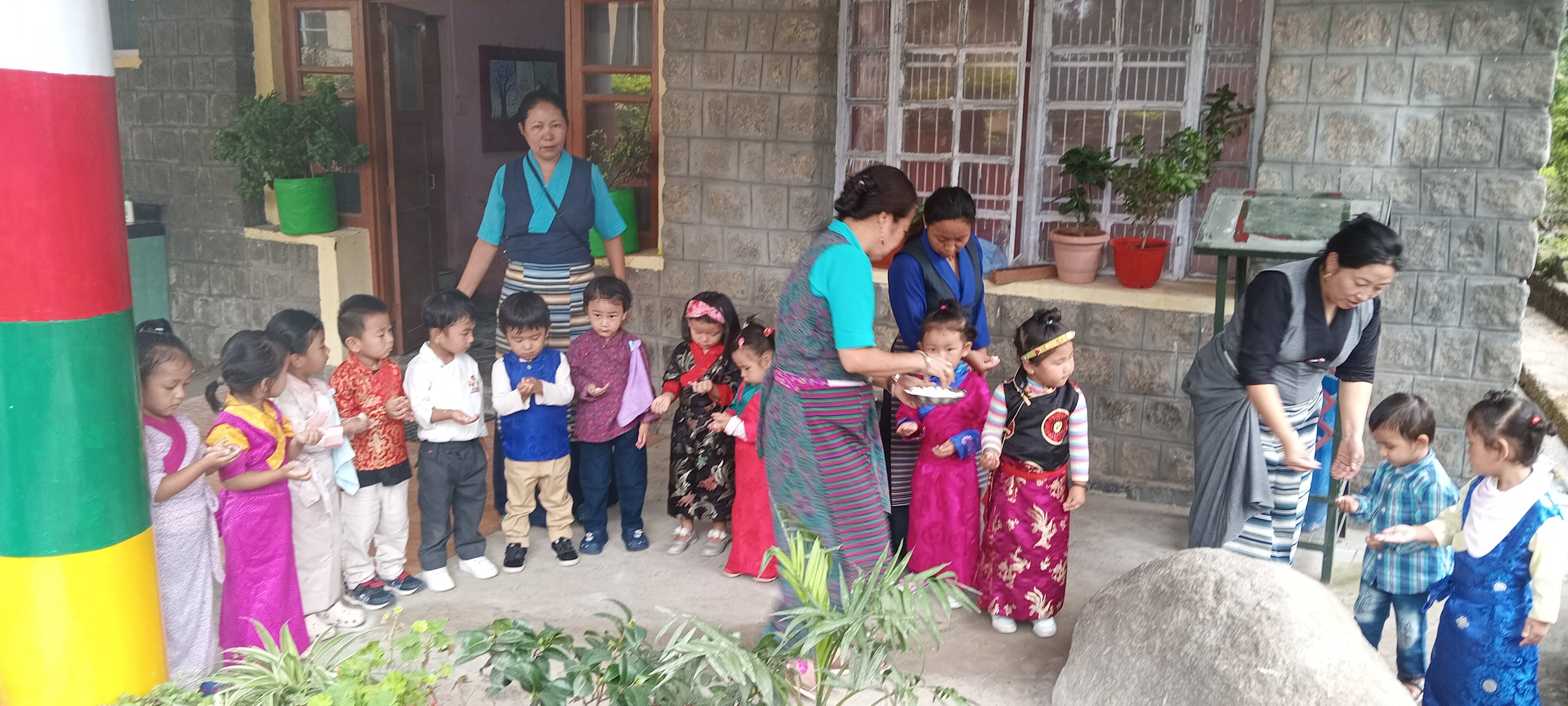NORBULINGKA INSTITUTE: PRESERVING TIBETAN ART AND CULTURE
-
Norbulingka preserves Tibetan tradition through training, education, and employment for Tibetans in Dharamshala, home of the Dalai Lama for over 60 years and seat of the Tibetan government-in-exile, supporting the values of the exile community.
They impart ancestral knowledge to students, providing employment to a self-sufficient community of more than 300 workers, who contribute to the preservation of culture and achieve a better quality of life with an eye toward future generations. -

-
They receive an academic education by studying Tibetan language, literature, and art for three years.
They seek a balance between tradition and modernity, and promote global awareness of Tibetan culture in art and literature.
Norbulingka Art Academy offers high-quality art objects, clothing, and furniture, including Tibetan statue making, thangka painting, silkscreen printing, clothing design and construction, wood painting, papermaking, and wood and metal crafts.
-
Part of Norbulingka's mission is to maintain a community where Tibetan values can flourish, fostering an environment where people feel settled, thus ensuring the project's continuity for many years to come.
Norbulingka not only provides paid employment to Tibetan refugees, but also supports other social services to improve the lives of its staff: schools, clinics, and housing.
One of the social programs is the Norling Creche Kindergarten. They offer schooling virtually free of charge to all children of Norbulingka staff, and also extend it to children in the village.
-

-
This also ensures that nursing mothers can continue working, as they are allowed to take breaks during the day to breastfeed their children.
Early childhood education plays a crucial role in preserving Tibetan culture, as children are taught the Tibetan language and values from a very young age.
-
The nursery school was founded in 1992 with just five children. Today, it serves approximately 60 children, taught by a team of teachers trained in the Montessori method. The goal is to guide children toward becoming independent and self-directed individuals. They are allowed and encouraged to follow their own natural interests, learning through exploration and experimentation. This method also fosters confidence and creativity.
-
"Kindergarten" offers tutoring, snacks, and other leisure activities to 26 former students who have started primary school at another Tibetan school. This ensures they have an environment where they can play and learn until their parents finish their workday at the school. Furthermore, the school maintains their connection with the school where they grew up and, therefore, with the teachers who supported them throughout their early childhood.

The school remains open all year round, except on Sundays and holidays.
TRANSFORMING LIVES THROUGH THE MISTICARIUM FOUNDATION
-
Thanks to a donation from the Misticarium Foundation, the bathrooms on all three floors of the nursery school have been completely renovated. This has significantly improved the restrooms in every way.
The kitchen has also been renovated with the installation of two sinks and the tiling of the walls and floors. This has been a much-needed functional improvement that makes daily cleaning and meal preparation easier.
The work was carried out under the supervision of the Norbulingka Institute maintenance team. For two weeks, the school continued operating, adapting to the necessary changes, such as the temporary relocation of the infant classroom to an apartment attached to the school, creating a comfortable and welcoming space once again. A cooking room and a dining room were also converted for both the children and teachers.
At the entrance to the school, there is a porch where a communal sink has also been installed, especially for mothers and fathers when they come to feed their babies.
-

-
The coordination and teamwork of both the maintenance staff and the construction workers allowed the school to navigate the process successfully despite the inconveniences (noise, dust, travel, and cleanup).
-
Once the works were completed, a simple inauguration was held to give them the recognition they deserve, involving everyone in the community work carried out.










